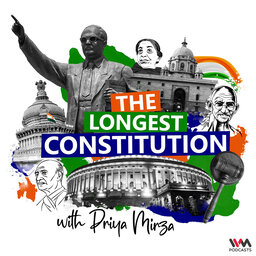
The Longest Constitution with Priya Mirza
What did those three hundred individuals who drafted the Indian Constitution want India to be? How far or close are we to achieving that radical vision of liberty, equality, and freedom shown by BR Ambedkar? These ideas sound great but what does it really mean to us, what is a constitution and how does it affect us as we go about living our lives? The Longest Constitution podcast is about the pe…Social links:
Follow the podcast:
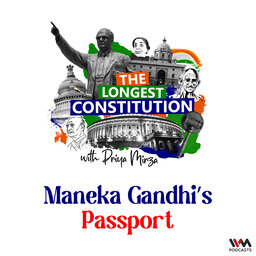
Maneka Gandhi’s Passport
In the end, Maneka Gandhi did not in fact get her passport. But we end this year’s introspection into constitutional matters with a landmark case: Menaka Gandhi vs. Union of India, 1977. Gandhi’s passport was impounded in ‘public interest’. While this followed statutory regulations, that’s the Pass…
10:00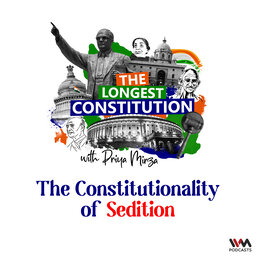
The Constitutionality of Sedition
The fifth parliamentary elections of India in 1971, set into motion a series of events that shaped the nation and the constitution. While campaigning, political parties promised voters that the constitution would be amended, a clear indicator that the Supreme Court’s striking down of parliamentary …
09:38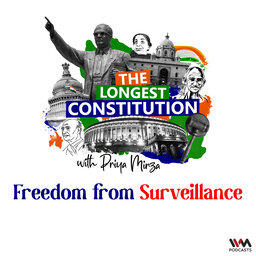
Freedom from Surveillance
Article 21 of the Constitution guarantees every person the right to life or personal liberty. But what good is such a right if it means being under surveillance and subjected to domiciliary visits at night? This episode of The Longest Constitution looks at how courts interpreted Article 21. Just as…
10:17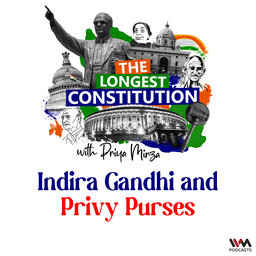
Indira Gandhi and Privy Purses
Does merely disapproving of the government amount to sedition? In Debi Soren vs State, 1950, the court thought so. What consequences did that have for free speech in India? Plus, in this episode of The Longest Constitution, we look at how the Indira Gandhi government tried every unconstitutional m…
09:52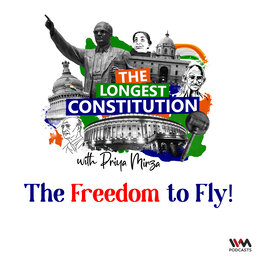
The Freedom to Fly!
The fundamental right to movement under Article 19(1)(d) was carefully worded: (d) to move freely throughout the territory of India. But what about beyond the territory of India? For the first two decades of independent India, obtaining a passport meant being entirely at the mercy of the Ministry o…
10:03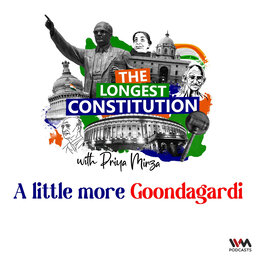
A little more Goondagardi
Land conflict is the most enduring form of conflict between the state and individuals. And it is here that the Goondas Act, in place in nine states, allows the state unquestionable and unaccountable power to squash dissent by detaining a person for up to a year. This episode of The Longest Constitu…
10:21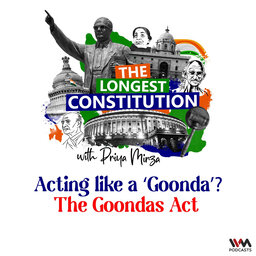
Acting like a ‘Goonda’?: The Goondas Act
Who is a goonda? And what’s the problem with the ‘goondas’ act - in place in many states in India? As we dig deeper into Article 19, we consider the fundamental right to movement. Article 19(1)(d) guarantees all citizens the right to move freely throughout the territory of India. And Article 19(1)(…
10:42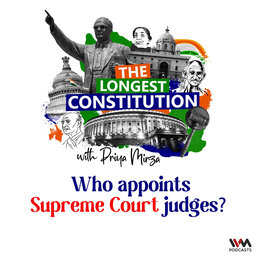
Who appoints Supreme Court judges?
What does the Supreme Court do when parliament tries to strike down the collegium system? It strikes it down! This episode of The Longest Constitution looks at the most recent effort of the government to control judicial appointments - the 99th amendment, 2014 and its aftermath. We also begin to u…
10:03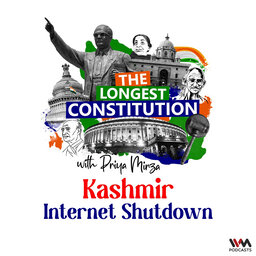
Kashmir Internet Shutdown
Is accessing the Internet a fundamental right? A recent judgment affirmed that since so many essential services depend on the internet, shutting down access to the internet is tantamount to a violation of fundamental rights. We look at a worrying trend in India: a frequent resort to doing precisely…
10:12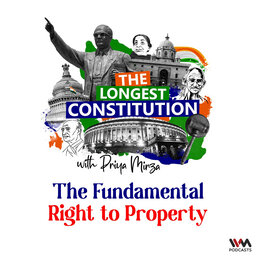
The Fundamental Right to Property
If you use the internet (!), this is the episode you need to tune into! But first….what does it actually mean? To have a fundamental right to property? This was a huge debate in the Constituent Assembly and Article 31 and 19(1)(g) granted Indian citizens the right to property. This meant that whi…
10:18
 The Longest Constitution with Priya Mirza
The Longest Constitution with Priya Mirza